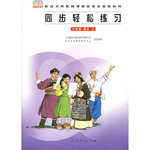题目内容
Attitubde is an internal(内在的)state that influences the choices of personal action made by the individual(个人). Some researchers consider that attitudes come from defferences between beliefs and ideas; others believe that attitudes come from emotional states. Here, we focus on the effects of attitudes upon behavior, that is, upon the choices of action made by the individual.
The kinds of actions taken by human beings are obviously influenced greatly by attitudes. Whether one listens to classical music or rock, whether one obeys the speed limit while driving, whether one encourages one’s husband or wife to express his or her own ideas-all are influenced by attitudes. These internal states are acquired(获得) throughout life from sitations one is faced with in the home, in the streets, and in the school.
Of course, the course of action chosen by an individual in any situation will be largely determined by the particulars of that situation. An individual who has a strong attitude of obeying laws may drive too fast when he is in a hurry and no police cars in sight. Achild who has a strong attitude of honesty may steal a penny when she thinks no one will notice, But the internal state which remains unchanged over a period of time, and which makes the individual behave regularly in a variety of situations, is what is meant by an attitude.
Attitudes are learned in a variety of ways. They can result from single incidents, as when an attitude toward snakes is acquired by an experience in childhood at the sudden wovement of a snake. They can result from the individual’s experiences of success and pleasure, as when someone acquires a positive attitude toward doing crossword puzzles by being able to complete some of them, And frequently, they are learned by copying other people’s behavior, as when a child learns how to behave toward foreigners by observing the actions of his parents. Regaudless of these differences, there is something in common in the learning and modihcation(修正)of attitudes.
1. According to the passage, attitudes .
A. come from different situations in one’s life
B. are largely affected by one’s behavior
C. remain unchanged in one’s daily life
D. could be chosen according to one’s will
2. The author uses the examples in Paragraph 3 to show .
A.people often make mistakes when they are not noticed
B.people with good attitudes may sometimes do bad deeds
C.particulars of a situation may influence an individual’s action
D.an individual may change his or her attitude fairly easily
3. Which of the following is TRUE about the learning of attitudes?
A.Attitudes are only learned through one’s success.
B.Attitudes learned in danger will last longer.
C.Copying others behavior is not a good idea.
D.Attitudes can be learned from one’s parents.
4. What would be the best title for the passage?
A.Differences of Attitudes.
B.Nature of Attitude.
C.Choices of Attitudes.
D.Modification of Attitude.
1.A 2.C 3.D 4.B

 同步轻松练习系列答案
同步轻松练习系列答案 课课通课程标准思维方法与能力训练系列答案
课课通课程标准思维方法与能力训练系列答案